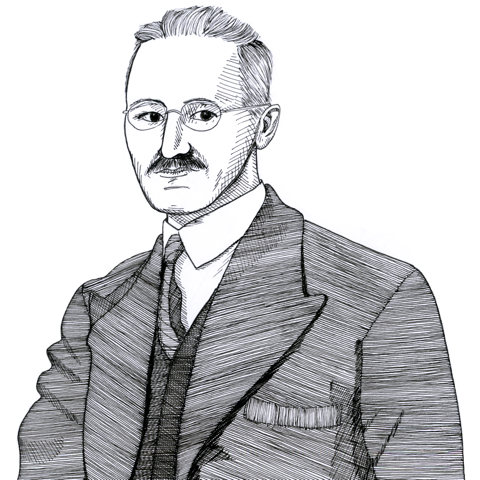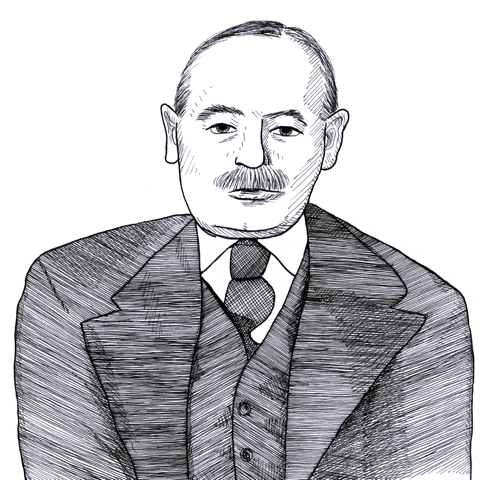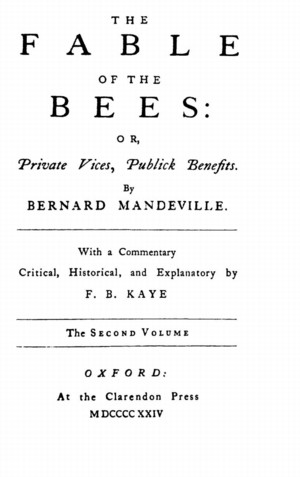
Part of: The Fable of the Bees or Private Vices, Publick Benefits, 2 vols. The Fable of the Bees or Private Vices, Publick Benefits, Vol. 2
- Bernard Mandeville (author)
- Frederick Benjamin Kaye (introduction)
Mandeville is a witty satirist who used a poem to make the profound economic point that “private vices” (or self-interest) lead to “publick benefits” (such as orderly social structures like law, language, and markets).
Related People
Critical Responses
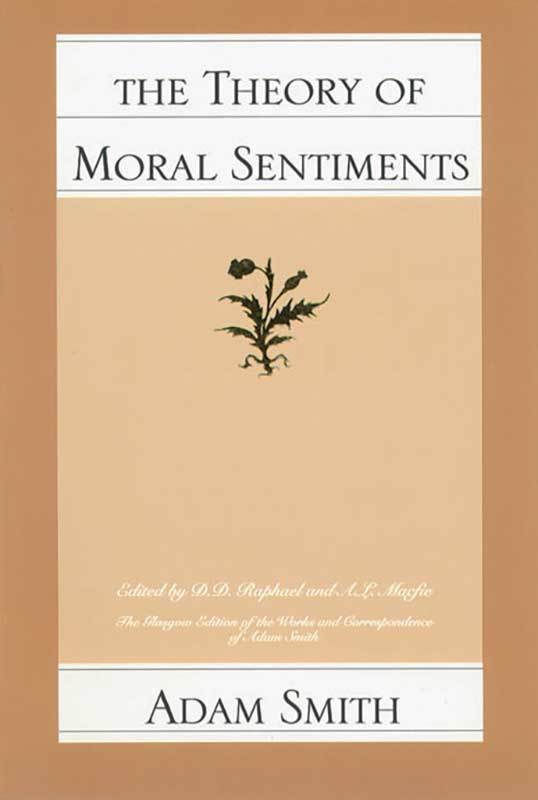
Book
The Theory of Moral Sentiments and on the Origins of Languages (Stewart ed.)Adam Smith
Adam Smith’s The Theory of Moral Sentiments - written shortly after Mandeville’s death Smith takes issue with Mandeville’s characterization of human nature and the mechanisms he employs to understand wealth creation and social harmony.
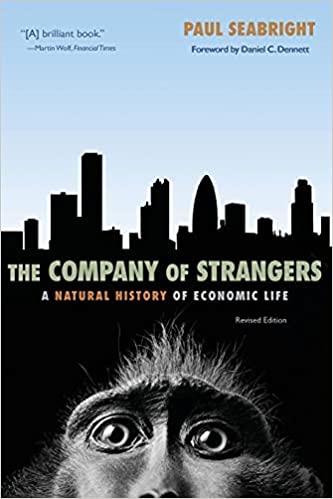
Book
The Company of Strangers: A Natural History of Economic LifePaul Seabright
Paul Seabright’s The Company of Strangers - his history of economic social life uses Mandeville and other 16th and 17th century philosophers as a contrast to the unintended changes that modern markets have brought to contemporary society.
Connected Readings
Liberty Matters
Mandeville, Hayek, and the Politics of Self-EsteemMikko Tolonen, Jimena Hurtado, Dario Castiglione, and Andrea Branchi
Video Interview
Liberty Matters Author Interview: Dario CastiglioneG. Patrick Lynch
Liberty Matters Author Interview

